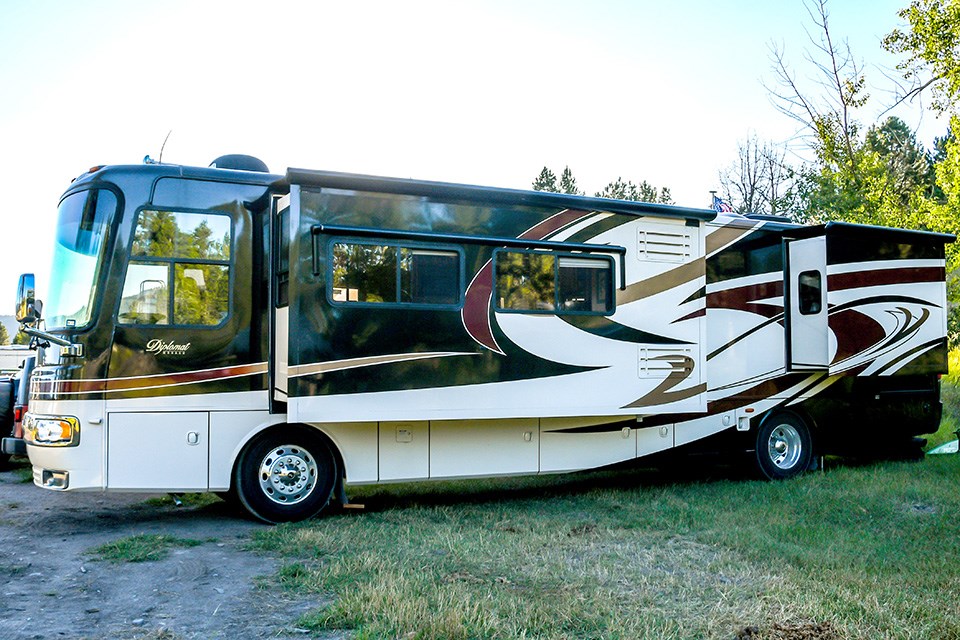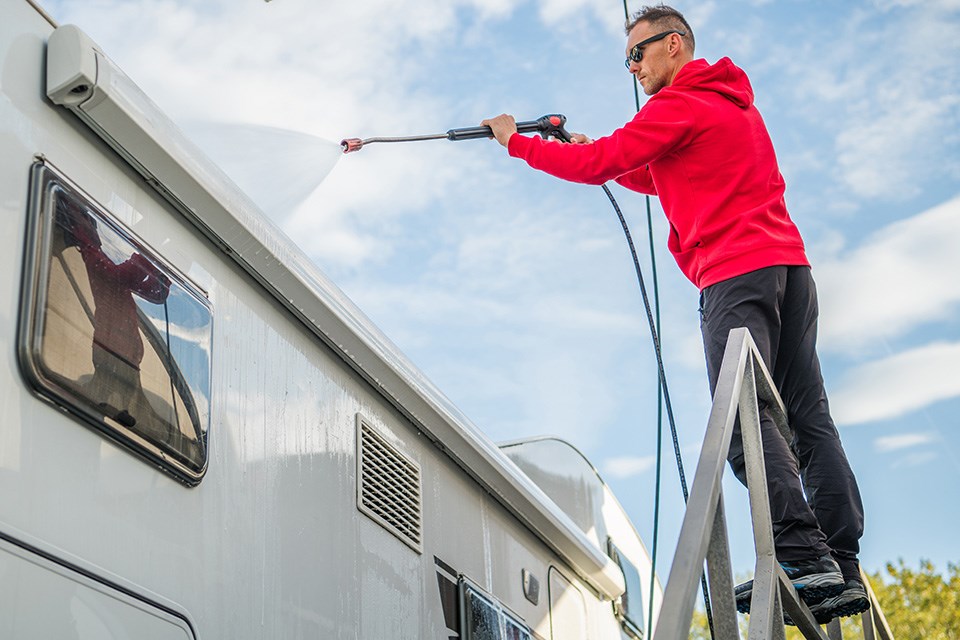Embarking on a journey in your RV is a thrilling adventure, but ensuring safety on the road should always be your top priority. From planning your routes to practicing proper RV maintenance, here are some crucial tips to help you stay safe and secure during your travels.
Plan Routes and Gas Stops in Advance

Before hitting the road, take the time to plan your travel routes carefully. Utilize GPS devices, navigation apps, or reliable road maps to identify suitable roads and highways for your journey. Consider factors like road conditions, traffic patterns, and construction zones to avoid congested and potentially hazardous areas. Additionally, locate gas stations along your route to ensure you have adequate refuelling options. This proactive approach to route planning can enhance your driving experience, reduce the risk of accidents, and keep you on track for a smooth trip.
Load Your RV Properly
Properly distributing the weight inside your RV is crucial for maintaining stability and balance. Overloading one side or the rear of the RV can lead to dangerous swaying while driving, especially during strong winds or sudden manoeuvres. Distribute the weight evenly and place heavier items lower and closer to the centre of the RV. Be mindful of weight limits specified by the manufacturer, and regularly check and adjust the weight distribution to ensure a safe and comfortable ride. Proper loading not only enhances safety but also prevents unnecessary wear and tear on the vehicle.
Use a Spotter When Backing Up

Manoeuvring an RV in reverse can be challenging, particularly in tight spaces or unfamiliar surroundings. Enlist the help of a spotter to guide you when backing up or parking. Establish clear hand signals or a communication system to ensure effective communication between the driver and the spotter. This precaution can prevent accidents and property damage while improving your overall driving confidence. Taking the extra time to safely position your RV can save you from costly mishaps and repair expenses.
Invest in a Roadside Assistance Plan
Mishaps can happen, even with the most diligent preparations. Invest in a reliable roadside assistance plan specifically tailored for RVs. These plans typically cover services like tire changes, fuel delivery, jump-starts, and towing. Having a comprehensive roadside assistance plan provides peace of mind and a quick response in case of emergencies. Research and compare different plans to find one that aligns with your travel needs and destination preferences. Knowing you have a trustworthy support system in place can alleviate stress and allow you to enjoy your journey with confidence.
Keep Up with RV Maintenance

Regular maintenance is the cornerstone of ensuring your RV's safety and longevity. Create a comprehensive maintenance schedule and follow it diligently. Routine checks should include engine inspections, tire evaluations, brake assessments, and fluid level examinations. Addressing potential issues proactively can prevent breakdowns and accidents on the road. Don't forget to include regular inspections of your RV's exterior, including seals, roof, and windows, to safeguard against water leaks and structural damage. A well-maintained RV not only keeps you safe but also enhances your overall travel experience.
Stay Weather Aware
Weather conditions can have a significant impact on your RV's handling and driving experience. Stay weather aware by keeping a close eye on forecasts along your route, especially during stormy or extreme weather conditions. High winds can affect your RV's stability, heavy rain can reduce visibility, and icy roads can make driving hazardous. If adverse weather is predicted, consider adjusting your travel plans, delaying your journey, or finding a safe location to wait it out. Always prioritize safety and avoid driving in dangerous weather conditions whenever possible.
Practice Defensive Driving
Adopting defensive driving techniques is crucial when operating a large and heavy vehicle like an RV. Stay alert and attentive at all times, and avoid distractions that could divert your attention from the road. Maintain a safe following distance between your RV and other vehicles, allowing ample time to react to sudden stops or emergencies. Anticipate potential hazards on the road and be prepared to respond appropriately. Defensive driving not only enhances your safety but also sets an example for other motorists, promoting responsible and respectful driving practices.
Remember, RV safety begins with a thorough understanding of your vehicle and the dedication to take necessary precautions. By following these seven tips, you can make your RV adventures not only exciting but also secure for you and your loved ones. Embrace the joy of exploration with confidence, knowing that safety is your constant travel companion. Safe travels!
This story is brought to you by Great West Media Content Studio. It is not written by and does not necessarily reflect the views of the editorial staff.




